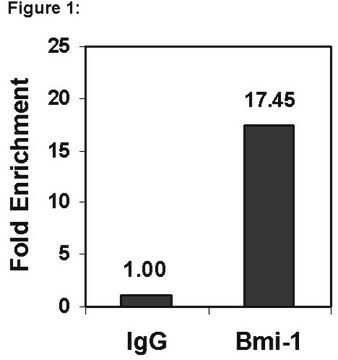11719386001
Roche
Immunoprecipitation Kit (Protein G)
sufficient for 20 reactions, kit of 1, suitable for immunoprecipitation (IP)
Synonym(s):
Protein G, immunoprecipitation kit
About This Item
Recommended Products
usage
sufficient for 20 reactions
packaging
kit of 1
manufacturer/tradename
Roche
technique(s)
immunoprecipitation (IP): suitable
shipped in
wet ice
storage temp.
2-8°C
General description
Specificity
Application
Packaging
Preparation Note
The kit contains reagents for 125 ml of lysis buffer/wash buffer 1. Prepare at least a minimal volume of 25 ml, sufficient for four immunoprecipitations.
To prepare 25 ml of lysis buffer/wash buffer 1 mix 5 ml core buffer, 3.75 ml NaCl, 2.5 ml detergent mix and 1 cOmplete Tablet. Add water to a final volume of 25 ml.
Solution is stable at 2 to 8 °C for 24 hours. When stored in aliquots at -15 to -25 °C, the solution is stable for at least four weeks. Mix thoroughly after thawing.
Wash buffer 2
The kit contains reagents for 50 ml of wash buffer 2. 2 ml of this buffer is required for one immunoprecipitation.
To prepare 50 ml of wash buffer 2 mix 10 ml core buffer, 25 ml NaCl and 0.5 ml detergent mix. Add water to a final volume of 50 ml.
Solution is stable at 2 to 8 °C. For longer periods, store aliquots at -15 to -25 °C. Mix thoroughly after thawing.
Wash buffer 3
The kit contains reagents for 25 ml of wash buffer 3. 1 ml of this buffer is required for one immunoprecipitation.
To prepare 25 ml mix 1 ml core buffer and 0.25 ml detergent mix. Add water to a final volume of 25 ml.
Solution is stable at 2 to 8 °C. For longer periods, store aliquots at -15 to -25 °C. Mix thoroughly after thawing.
Other Notes
Kit Components Only
- Core Buffer
- NaCl
- Detergent Mix
- cOmplete Protease Inhibitor Cocktail Tablets (5)
- Protein G Agarose ready-to-use
Signal Word
Danger
Hazard Statements
Precautionary Statements
Hazard Classifications
Aquatic Chronic 2 - Eye Dam. 1 - Skin Corr. 1B - Skin Sens. 1
Storage Class Code
8B - Non-combustible corrosive hazardous materials
WGK
WGK 3
Flash Point(F)
does not flash
Flash Point(C)
does not flash
Certificates of Analysis (COA)
Search for Certificates of Analysis (COA) by entering the products Lot/Batch Number. Lot and Batch Numbers can be found on a product’s label following the words ‘Lot’ or ‘Batch’.
Already Own This Product?
Find documentation for the products that you have recently purchased in the Document Library.
Protocols
Immunoprecipitation Kit (Protein G) Protocol & Troubleshooting
Our team of scientists has experience in all areas of research including Life Science, Material Science, Chemical Synthesis, Chromatography, Analytical and many others.
Contact Technical Service











